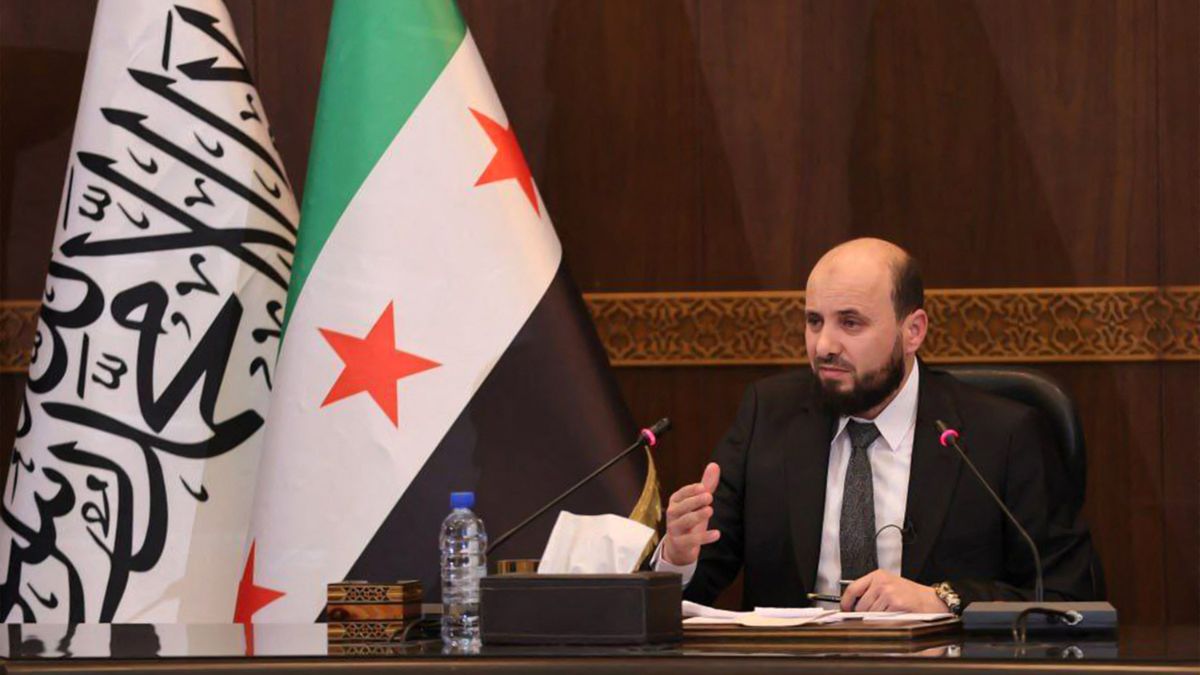The Bashar al-Assad regime may be gone from Syria, but the country is staring at a long rebuilding phase.
Syria has been ravaged by civil war for more than a decade and millions of people have been displaced.
The new prime minister has vowed to rebuild Syria but the coffers are empty and the currency is devalued.
“In the coffers there are only Syrian pounds worth little or nothing. One US dollar buys 35,000 of our coins,” Mohammed al-Bashir told Italian newspaper Il Corriere della Sera.
“We have no foreign currency and as for loans and bonds we are still collecting data. So yes, financially we are very bad,” Bashir added.
So, what will it take to rebuild Syria? What do experts say?
Let’s take a closer look:
Economy cratered
According to DW, in 2011, Syria’s economy was valued at $67.5 billion.
That was the year civil war broke out.
At the time, Syria was ranked 68 of 196 when it came to global GDP – next to Paraguay and Slovenia.
But the years of conflict have left Syria’s economy in shambles. The World Bank now estimates Syria’s economy at $9 billion – an 85 per cent.
Now Syria finds itself next to Chad and the Palestinian Territories when it comes to the rankings.
Oil and agriculture, the two main drivers of Syria’s economy, have been left shattered by the war.
In 2010, Syria’s oil exports comprised nearly 25 per cent of all government revenue. Syria was producing 383,000 barrels of oil per day in 2011. By 2023, that number was at just 90,840.
Food production too accounted for nearly the same.
Millions displaced
According to Politico, over six million people have fled Syria since 2011.
The United Nations Refugee Agency (UNHCR), has described the country as having “one of the largest displacement crises in the world.”
It says there are around 6.4 million Syrian refugees across the world.
Of these five million are in the surrounding nations of Egypt, Iraq, Jordan, Lebanon and Turkey.
This, as another seven million Syrians have been displaced internally.
That’s not all.
Another 13 million people, over half of the country’s population, are dealing with food insecurity.
Around 96 per cent of the populace lives on around $7 (Rs 593) a day.
The UN-Habitat said that around 328,000 homes have been destroyed and 13.6 million people do not have access to clean water, hygiene and sanitation.
DW quoted the Syrian Center for Policy Research (SCPR) as saying that the country also witnessed hyperinflation last year.
Inflation in 2023 was at an eye-watering 140 per cent.
SCPR in a June report said the consumer price index (CPI) had doubled compared to the previous year.
Unemployment, which was at 8.5 per cent in 2010, touched 13.5 per cent in 2023.
Mohammed al Hourani, a resident of Damascus, told Al Jazeera, “We’ve had a gas crisis, a fuel crisis, a crisis of everything even a bread crisis. Hopefully things will get better now.”
Infrastructure destroyed
The country’s infrastructure also lies in ruins.
As per DW, Aleppo, Raqqa and Homs have witnessed wide-scale destruction.
Electricity, transportation and healthcare systems have also been degraded.
Politico quoted UN-Habitat as saying that in 2023 over 40 per cent of Syria’s hospitals were not fully functional.
When it comes to international aid, the country faces as shortfall of $3 billion.
DW quoted experts as saying it could take a decade for GDP to return to the 2011 levels.
They also said the country could take 20 years to be completely rebuilt.
Experts also warned that things “could worsen in the event of any further political instability.”
According to Semafor, a 2021 estimate pegged the cost of doing so at $250 billion.
As per _Al Jazeera, i_n 2018, it was estimated that $88 billion had been spent on rebuilding Iraq – with not much to show for it.
Around $140 billion has been spent on Afghanistan.
Fadi Dayoubg, executive director, LDSPS, and member of Syria Resource Group, told Al Jazeera what is required isn’t so much rebuilding as the construction of a new country.
Syria has also been facing crippling sanctions from the international community.
Some experts have called for them to be lifted immediately.
Delaney Simon, senior analyst at the International Crisis Group, wrote on X that Syria is “one of the most heavily sanctioned countries in the world.”
She added that leaving those curbs in place would be like “pulling the rug out from Syria just as it tries to stand.”
Countries hope the new authorities’ behaviour will make it possible to ease wartime sanctions imposed on Damascus under Assad , as well as terrorism bans imposed on the rebels who toppled him.
Two senior US congressmen, a Republican and a Democrat, wrote a letter calling for Washington to suspend some sanctions on Syria.
The most punishing war-time US sanctions are up for renewal this month, and the former rebels have told Reuters they are in touch with Washington about potentially easing them.
But some are overjoyed.
For refugees, the prospect of returning home has brought a mixture of joy and grief over hardship in exile.
Ala Jabeer cried as he prepared to cross from Turkey into Syria with his 10-year-old daughter on Tuesday, 13 years after the war forced him to flee his home. His wife and three of his children were killed in exile by devastating earthquakes that struck the region last year.
“God willing, things will be better than under Assad ’s government. We’ve already seen that his oppression is over,” he said.
With inputs from agencies
)